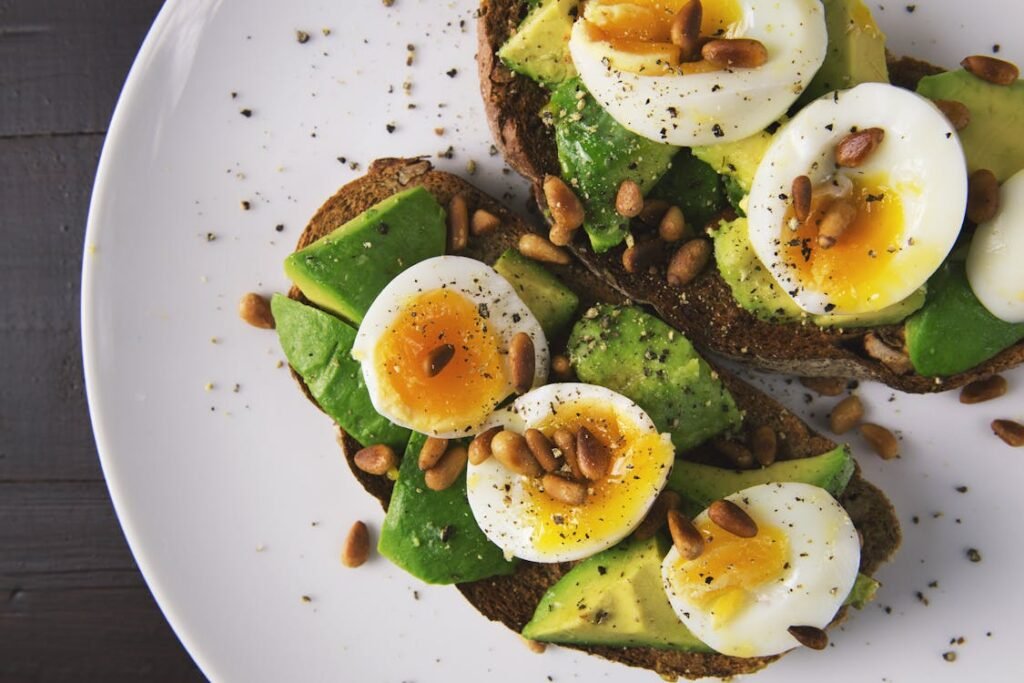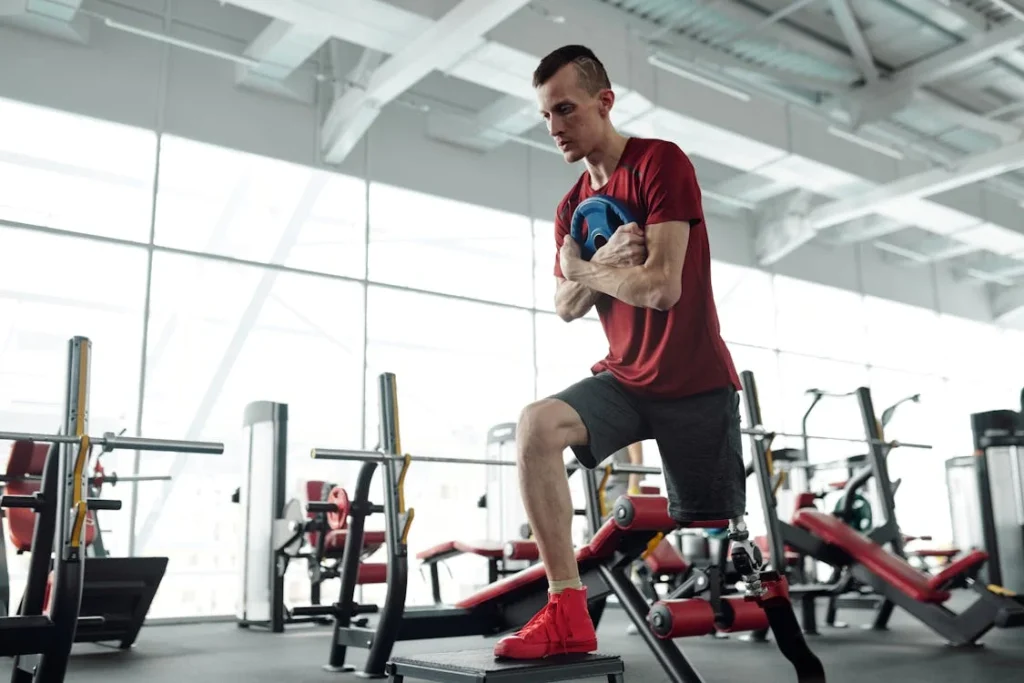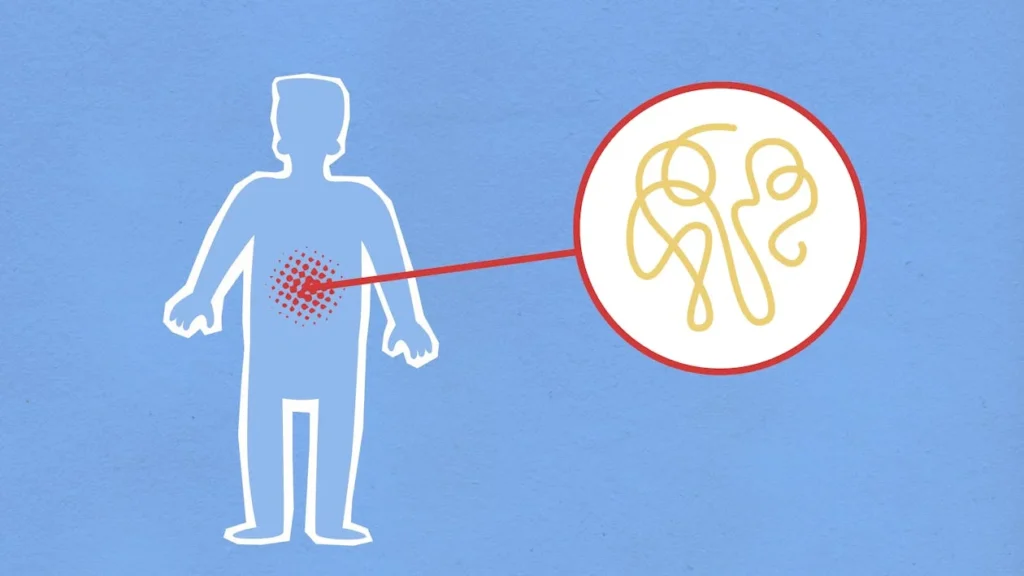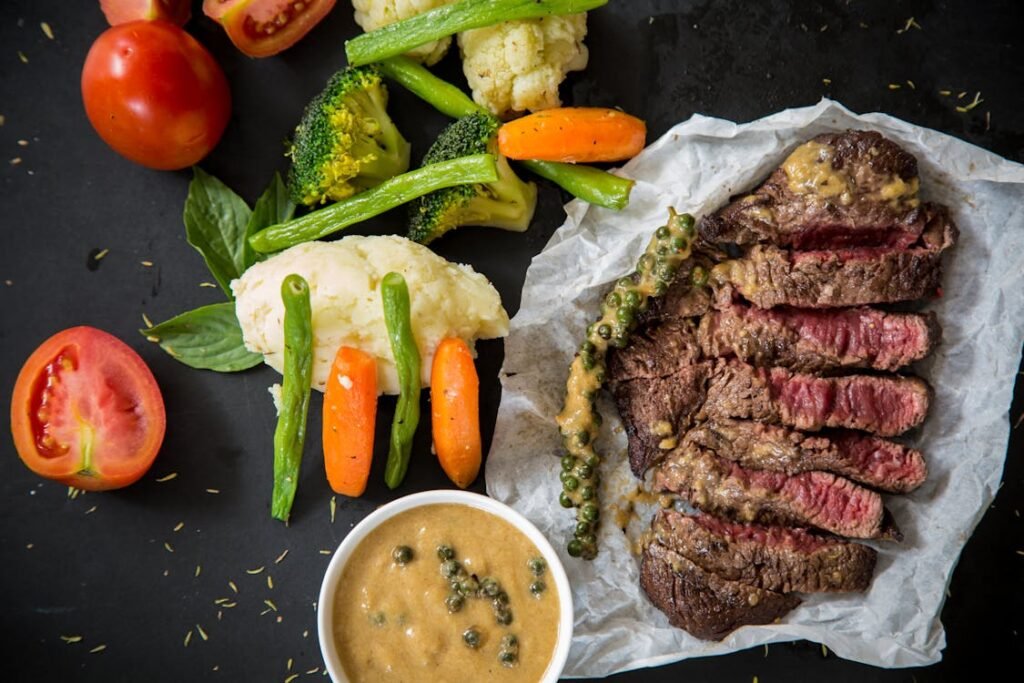Athletes push their bodies to the limit, demanding strength, endurance, and agility. For amputee athletes, the challenges can be even greater. Competing at a high level requires not just physical training but also the right nutrition. What an athlete eats directly affects their energy levels, recovery time, and overall performance.
Nutrition plays a key role in fueling workouts, repairing muscles, and maintaining stamina. For amputee athletes, smart eating is even more crucial because their bodies work harder to balance movement and adapt to prosthetics. A strong diet can reduce fatigue, enhance endurance, and support muscle recovery. Without proper nutrition, performance can suffer, leading to slower recovery times and an increased risk of injury.

Fueling the Body for Maximum Performance
An athlete’s body is like a high-performance machine—it needs the right fuel to function at its best. Amputee athletes, in particular, require a well-balanced diet to maintain energy levels, recover quickly, and support muscle strength. The key to optimal performance lies in choosing the right nutrients at the right time.
Carbohydrates are the body’s primary source of energy. They provide the fuel needed for both short bursts of speed and long endurance sessions. Whole grains, fruits, and starchy vegetables help sustain energy levels throughout training and competition.
When an athlete does not consume enough carbohydrates, their body may struggle with fatigue, leading to decreased performance.
Proteins are essential for muscle repair and growth. Since amputee athletes rely on their upper body and core muscles more than others, maintaining muscle strength is vital.
Lean meats, fish, eggs, dairy, and plant-based proteins like lentils and beans help repair worn-out tissues and keep muscles strong. A steady intake of protein after training aids in faster recovery, reducing soreness and preventing injuries.
Fats are another important component of an athlete’s diet. While some people fear fats, healthy sources like nuts, seeds, avocados, and olive oil provide long-lasting energy. These fats support joint health and reduce inflammation, helping athletes stay active without unnecessary pain or stiffness.
Hydration is often overlooked but plays a crucial role in an athlete’s performance. Dehydration can lead to muscle cramps, slower reaction times, and decreased endurance.
Amputee athletes, especially those using prosthetics, may experience more sweating due to increased exertion, making hydration even more important. Drinking enough water throughout the day, along with electrolyte-rich drinks during intense training, helps maintain fluid balance and prevent exhaustion.
Optimizing Nutrition for Strength and Endurance
Every sport requires a different level of stamina, strength, and endurance. Sprinters need explosive power, endurance runners require sustained energy, and strength athletes focus on building muscle. Amputee athletes need to fine-tune their nutrition based on their sport, training intensity, and personal energy demands.
Eating before training is essential to ensure sustained energy levels. A balanced meal with complex carbohydrates, moderate protein, and healthy fats provides steady energy and prevents fatigue.
Foods such as oatmeal with nuts, whole-grain toast with peanut butter, or a fruit smoothie with yogurt are great options before workouts.
During exercise, some athletes may need quick-digesting snacks to maintain performance. Simple carbohydrates like bananas or energy gels can provide an instant energy boost, especially during long training sessions.
Hydration also plays a major role in endurance, preventing the body from overheating and keeping energy levels stable.
After training, the focus should be on recovery. This is when muscles need protein and carbohydrates to repair and rebuild. A post-workout meal or snack with a protein source, such as a protein shake, chicken with rice, or eggs with whole-grain toast, speeds up recovery and prepares the body for the next session.

Building Muscle and Maintaining Strength
For amputee athletes, muscle strength is not just about performance—it is essential for stability, balance, and movement efficiency. Whether competing in sprinting, cycling, weightlifting, or endurance sports, maintaining strong muscles is crucial.
The body compensates for the missing limb by relying more on other muscle groups, especially the core, back, and shoulders. Proper nutrition plays a key role in muscle growth, recovery, and preventing fatigue.
Protein is the foundation of muscle repair and strength. After every training session, the body breaks down muscle fibers, which then need to be rebuilt stronger. This process requires a steady intake of high-quality protein sources.
Foods like lean meats, fish, eggs, dairy, legumes, and tofu provide the necessary amino acids to rebuild muscle tissue. Timing is also important—consuming protein within 30 to 60 minutes after a workout ensures that muscles get the nutrients they need to recover.
Carbohydrates also play a role in muscle maintenance. While protein helps repair muscles, carbohydrates replenish glycogen stores—the body’s energy reserves stored in muscles.
Without enough glycogen, athletes feel sluggish and weak, making it harder to train at full intensity. Whole grains, fruits, and starchy vegetables like potatoes help restore energy levels, ensuring that muscles function properly during the next workout.
Healthy fats contribute to long-term muscle health by reducing inflammation and supporting hormone production. Omega-3 fatty acids, found in salmon, walnuts, and flaxseeds, help keep joints and muscles flexible, reducing the risk of stiffness or injury.
For amputee athletes who put extra strain on certain joints, incorporating these fats into the diet can help with recovery and overall performance.
Preventing Inflammation and Enhancing Recovery
Intense physical activity naturally leads to inflammation in the body, especially after high-impact sports or strength training. While some inflammation is a normal part of muscle repair, chronic inflammation can slow down recovery and cause long-term discomfort.
Managing inflammation through diet can help amputee athletes stay in peak condition and recover faster between training sessions.
Antioxidant-rich foods help reduce inflammation and support muscle healing. Brightly colored fruits and vegetables such as berries, spinach, carrots, and bell peppers contain vitamins and minerals that fight oxidative stress. These nutrients protect muscle cells from damage and speed up recovery after intense workouts.
Hydration is also key in flushing out toxins that contribute to inflammation. Water helps transport nutrients to muscles and removes waste products from the body.
Drinking enough fluids throughout the day prevents dehydration-related muscle soreness and cramping. Athletes who sweat heavily should also replace lost electrolytes by consuming coconut water, electrolyte drinks, or naturally salty foods like nuts and seeds.
Protein intake should be consistent, not just after workouts but throughout the day. Eating small portions of protein-rich foods at regular intervals ensures that the body has a constant supply of amino acids to repair and build muscles.
This approach prevents muscle breakdown, especially during long training sessions or competitions.

The Role of Supplements in Athletic Performance
While whole foods should always be the foundation of an athlete’s diet, some amputee athletes may benefit from supplements to fill nutritional gaps and enhance performance. Since their bodies work harder to maintain balance, stability, and endurance, certain nutrients may be needed in higher amounts.
Supplements can help support energy levels, muscle recovery, and overall well-being when training demands are intense.
Protein powders can be a useful addition, especially for athletes who struggle to get enough protein from food alone. Whey protein is a popular choice due to its fast absorption and rich amino acid profile.
Plant-based protein powders, such as pea or soy protein, are excellent alternatives for those who prefer dairy-free options. A protein shake after training provides an easy and quick way to support muscle repair.
Creatine is another supplement that has been widely studied for its benefits in increasing strength and endurance. It helps muscles produce energy during high-intensity workouts, making it a valuable tool for amputee athletes involved in sprinting, weightlifting, or other explosive sports.
By improving power output, creatine can also enhance an athlete’s ability to train harder and recover faster.
Omega-3 fatty acids, commonly found in fish oil supplements, are beneficial for reducing inflammation and supporting joint health. Since amputee athletes often put extra strain on certain joints due to changes in movement mechanics, maintaining joint flexibility and reducing stiffness is crucial.
Omega-3s can also aid in cognitive function and mood regulation, which can be helpful in managing the mental challenges that come with intense training and competition.
Vitamin D and calcium play an important role in bone health. Athletes who train outdoors get vitamin D from sunlight, but those who do indoor training or live in areas with limited sun exposure may need supplementation.
Strong bones are essential for amputee athletes, as they experience different weight distributions and pressures on their remaining limbs. Calcium-rich foods like dairy products, leafy greens, and fortified plant-based milk should be included in the diet, but supplementation may be needed if dietary intake is insufficient.
Electrolytes such as sodium, potassium, and magnesium help maintain fluid balance and prevent muscle cramps. Sweating during exercise leads to the loss of these essential minerals, which need to be replenished to avoid dehydration and fatigue.
Sports drinks, electrolyte tablets, or natural sources like coconut water can help restore electrolyte levels after intense physical activity.
Although supplements can be beneficial, they should never replace a well-balanced diet. Athletes should consult a sports nutritionist or healthcare provider before adding supplements to their routine to ensure they are taking the right amounts based on their individual needs.
Mental Resilience and the Role of Nutrition in Focus and Stamina
Athletic performance is not just about physical strength—it also depends on mental resilience, focus, and determination. Nutrition plays a key role in brain function, concentration, and energy levels, all of which are crucial for amputee athletes who need to stay sharp during training and competition.
Stable blood sugar levels are essential for maintaining focus and preventing energy crashes. Eating balanced meals with complex carbohydrates, proteins, and healthy fats provides a steady release of energy throughout the day.
Foods that cause blood sugar spikes, such as processed snacks and sugary drinks, should be avoided as they can lead to sudden drops in energy and mental fog.
Omega-3 fatty acids, found in fatty fish, flaxseeds, and walnuts, help support brain function and memory. These healthy fats have been linked to improved concentration and faster reaction times, which are essential for competitive athletes.
B vitamins, found in whole grains, leafy greens, and lean meats, help convert food into energy and support the nervous system. Athletes who experience fatigue or lack of focus may benefit from increasing their intake of B-vitamin-rich foods.
Hydration also plays a significant role in mental clarity. Dehydration can lead to headaches, dizziness, and difficulty concentrating. Drinking enough water throughout the day, especially before and during training, ensures that the brain functions optimally.

Creating a Personalized Nutrition Plan for Amputee Athletes
Every athlete has different nutritional needs based on their sport, training intensity, and body composition. Amputee athletes, in particular, must consider how their unique physiology affects their energy expenditure and recovery.
A personalized nutrition plan can help optimize performance, reduce fatigue, and improve overall health.
The first step in creating an effective nutrition plan is understanding calorie needs. Many amputee athletes burn more energy than non-amputees due to the increased effort required for movement, balance, and stability.
However, factors such as the level of amputation, muscle mass, and type of prosthetic used can influence how many calories an individual requires. Working with a sports nutritionist can help determine the ideal caloric intake to maintain strength and endurance.
Meal timing plays a significant role in fueling the body properly. Eating at regular intervals helps maintain steady energy levels, prevents muscle breakdown, and supports recovery.
Athletes should aim to consume a mix of carbohydrates, proteins, and healthy fats before and after training sessions to maximize performance and muscle repair. Skipping meals or not eating enough can lead to energy crashes, muscle loss, and slower recovery times.
Digestive health should also be a priority. The gut plays a crucial role in nutrient absorption, immune function, and inflammation control.
A healthy gut microbiome ensures that the body can effectively process and utilize nutrients from food. Including probiotic-rich foods such as yogurt, kefir, and fermented vegetables can help support gut health, while fiber-rich foods like whole grains, fruits, and vegetables aid digestion.
Adapting Nutrition for Competition Days
The days leading up to a competition require careful planning to ensure peak performance. Amputee athletes must adjust their food intake based on the demands of their sport, considering factors such as endurance, strength, and recovery.
Carbohydrate loading can be beneficial for endurance athletes who need sustained energy over long periods. Increasing carbohydrate intake a day or two before an event helps fill glycogen stores, providing a steady fuel source during competition. Whole grains, starchy vegetables, and fruits are excellent choices for maintaining energy levels.
On competition day, pre-event meals should be easy to digest and rich in carbohydrates and protein. Heavy, greasy, or overly fibrous foods can cause digestive discomfort and should be avoided.
Hydration is also key—athletes should drink water throughout the day and replenish lost electrolytes if competing in hot or physically demanding conditions.
After the competition, recovery meals should focus on replenishing glycogen stores and repairing muscle tissue. A combination of protein and carbohydrates helps speed up muscle recovery and reduces soreness. Hydration should continue post-event to flush out toxins and prevent dehydration-related fatigue.
Long-Term Benefits of Smart Eating for Amputee Athletes
Smart eating is not just about short-term performance; it has lasting effects on overall health, injury prevention, and longevity in sports. A well-balanced diet supports bone density, joint health, and immune function, reducing the risk of injuries and illnesses that could interrupt training.
Proper nutrition also enhances sleep quality, which is essential for muscle recovery and cognitive function.
Developing consistent eating habits ensures that amputee athletes can sustain their training and competition schedules without experiencing burnout. Small, sustainable changes in diet can lead to significant improvements in strength, endurance, and mental resilience over time.
By prioritizing nutrition as a key part of their training routine, amputee athletes can unlock their full potential and compete at their highest level. With the right food choices, hydration strategies, and recovery methods, they can optimize their bodies for peak performance while maintaining long-term health and well-being.

The Impact of Phantom Limb Sensations and Nutrition on Nerve Health
One unique challenge that many amputee athletes face is phantom limb sensation or pain. This occurs when the brain continues to receive signals from the nerves that once controlled the missing limb.
While the causes of phantom limb pain are complex, research suggests that inflammation, poor circulation, and nerve sensitivity all play a role. Nutrition can be a powerful tool in managing these symptoms and supporting nerve health, ultimately improving an athlete’s performance and recovery.
How Nutrients Affect Nerve Health and Pain Management
Nerves require specific nutrients to function properly, send signals efficiently, and repair themselves after damage. A deficiency in these nutrients can increase nerve sensitivity, worsen phantom limb pain, and slow down recovery.
One of the most important nutrients for nerve function is vitamin B12, which helps maintain the protective coating around nerves. Without enough B12, nerves may become irritated, leading to increased pain and discomfort. Foods rich in B12, such as fish, eggs, and dairy, can support nerve repair and reduce sensitivity.
Magnesium is another essential mineral that helps relax nerves and muscles, preventing cramping and spasms that can contribute to phantom limb discomfort. Magnesium-rich foods like spinach, almonds, and avocados can help regulate nerve function and reduce pain signals.
Omega-3 fatty acids, found in fatty fish, walnuts, and flaxseeds, play a role in reducing nerve inflammation. Since inflammation can make phantom limb pain worse, including these healthy fats in the diet can help calm overactive nerves and improve overall pain tolerance.
Blood Flow and Circulation for Nerve Health
Good circulation is essential for nerve health because nerves rely on oxygen and nutrients delivered through the bloodstream. Poor circulation can lead to numbness, tingling, and increased phantom limb pain.
Hydration plays a major role in keeping blood flowing smoothly, as dehydration can lead to thickened blood and reduced oxygen supply to nerves. Drinking enough water throughout the day helps maintain proper circulation, preventing nerve-related discomfort.
Certain foods can naturally boost circulation and improve blood flow to the remaining limb and nerve endings. Citrus fruits like oranges and lemons contain vitamin C, which strengthens blood vessels and improves oxygen delivery.
Beetroot is another powerful food for circulation, as it contains nitrates that help expand blood vessels and increase blood flow to muscles and nerves.
Reducing Nerve Inflammation Through Diet
Inflammation is one of the biggest factors contributing to nerve pain. Processed foods high in artificial sugars and unhealthy fats can increase inflammation, making phantom limb pain worse. Choosing whole, anti-inflammatory foods can help control pain and improve nerve function.
Turmeric, a natural anti-inflammatory spice, contains curcumin, which has been shown to help reduce nerve pain. Adding turmeric to meals or drinking turmeric tea can provide benefits for both inflammation and overall joint health.
Ginger also has anti-inflammatory properties and can be consumed as tea or added to meals to help calm the nervous system.
By focusing on nerve-friendly foods, amputee athletes can manage phantom limb sensations more effectively, reduce pain, and improve their overall well-being. Combining proper nutrition with movement, hydration, and recovery techniques creates a stronger foundation for long-term performance and comfort.

The Link Between Gut Health and Athletic Performance in Amputee Athletes
The gut plays a central role in overall health, yet many athletes overlook its impact on performance, recovery, and energy levels. For amputee athletes, gut health becomes even more critical as their bodies require optimal digestion and nutrient absorption to maintain endurance and muscle strength.
A well-functioning digestive system ensures that nutrients from food are properly absorbed, inflammation is controlled, and energy levels remain stable throughout training and competition.
Understanding the Gut-Performance Connection
The gut is home to trillions of bacteria that influence everything from digestion to immunity and inflammation. When the gut is healthy and balanced, it efficiently breaks down food, absorbs essential nutrients, and supports energy production.
However, if the gut microbiome becomes unbalanced due to poor diet, stress, or certain medications, it can lead to bloating, fatigue, and sluggish recovery. For amputee athletes, this imbalance can mean reduced endurance, slower muscle repair, and increased inflammation, all of which can negatively affect performance.
Digestive efficiency directly impacts an athlete’s ability to sustain energy levels. When food is not properly digested, the body struggles to extract the necessary carbohydrates, proteins, and fats required for endurance and strength.
This can lead to energy crashes, muscle fatigue, and inconsistent performance during training sessions. Amputee athletes, who often require additional energy expenditure due to their prosthetics, need a gut that functions at its best to ensure consistent energy availability.
How Inflammation in the Gut Affects Recovery
Chronic inflammation is a major concern for amputee athletes, as it can slow down recovery and increase the risk of injury. An unhealthy gut can contribute to widespread inflammation by allowing harmful bacteria and toxins to enter the bloodstream, a condition often referred to as “leaky gut.”
This can trigger an immune response, causing joint stiffness, muscle soreness, and prolonged recovery times after training.
A diet rich in processed foods, artificial sugars, and unhealthy fats can aggravate gut inflammation, making it harder for athletes to recover between sessions. Over time, this can lead to digestive discomfort, nutrient deficiencies, and decreased stamina.
By focusing on whole, unprocessed foods that support gut health, athletes can reduce inflammation, improve digestion, and speed up recovery.
Fueling the Gut for Optimal Performance
Eating the right foods is key to maintaining a balanced gut and ensuring that digestion supports, rather than hinders, athletic performance. Fiber-rich foods help feed beneficial gut bacteria, promoting a stable microbiome that aids in digestion and energy production.
Including a variety of colorful fruits, vegetables, and whole grains in the diet can enhance gut function and ensure that the body receives a steady supply of essential nutrients.
Fermented foods, such as yogurt, kefir, and sauerkraut, introduce probiotics into the gut, restoring the balance of beneficial bacteria. These probiotic-rich foods can help prevent bloating, improve digestion, and strengthen the immune system, all of which contribute to an athlete’s overall well-being.
Since gut bacteria play a role in the production of neurotransmitters that regulate mood and focus, maintaining a healthy gut can also enhance concentration and mental resilience, which are essential for competitive sports.
Hydration also plays a role in gut health, as water helps move food through the digestive system and prevents constipation. Dehydration can slow down digestion, leading to bloating and discomfort, which can interfere with training.
Ensuring adequate water intake throughout the day keeps digestion smooth and supports nutrient absorption, helping athletes perform at their best.
For amputee athletes, taking care of gut health is just as important as strength training and endurance exercises. A well-nourished gut supports energy levels, reduces inflammation, and enhances recovery, allowing athletes to train harder, recover faster, and maintain peak performance.
By making gut health a priority, they can optimize their nutrition and achieve better results both in training and competition.
Conclusion
Nutrition is the foundation of peak performance for amputee athletes. A well-balanced diet fuels energy, strengthens muscles, enhances recovery, and supports mental resilience. Every meal and snack plays a role in sustaining endurance, reducing inflammation, and optimizing strength. From managing gut health to stabilizing blood sugar and improving nerve function, the right food choices can make a significant difference in athletic success.
Beyond physical benefits, smart eating also supports mental clarity, focus, and emotional well-being—key factors in high-level competition. The body and mind work together, and proper nutrition ensures they function at their best. Hydration, meal timing, and nutrient-dense foods all contribute to better performance, faster recovery, and long-term health.
For amputee athletes, training is more than just physical effort—it’s a lifestyle. Making nutrition a priority empowers them to compete with confidence, push past limits, and achieve their full potential. By fueling the body with intention, they can optimize their performance and redefine what is possible in sports.



